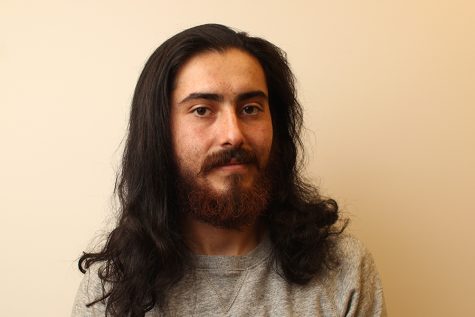Reflections illustrate struggles
Apr 28, 2015
More often than not the driving force that propels a family to leave its country of origin behind and immigrate to an unfamiliar country is war.
And in the case of the two refugees who were invited to Contra Costa College to share their experience assimilating into Western culture, the push factor was the Vietnam War.
The first Mein-American mayor in the nation, San Pablo Mayor Kathy Chao Rothberg, and Vietnamese-American journalist Andrew Lam recollected the challenges that holding onto one’s culture poses while wanting to succeed in the U.S.
As part of the Big Read, a communitywide reading program aided by West Contra Costa County Library and Contra Costa College, “The Vietnam War and Refugee Reflections: A Conversation” panel was held in the Library and Learning Resource Center on Monday at 5:30 p.m.
The Big Read commemorates the 40th anniversary of the Vietnam War’s end. West County’s Big Read focuses on Tim O’ Brien’s acclaimed novel, “The Things They Carried.”
Rothberg said when her family came to Richmond in the late 1970s her parents had to work hard to make a living, like many low-income minority groups who are still emigrating from countries in Asia, Africa, Central and Southern America to escape impoverished conditions due to conflict.
She said life in the U.S. for these people is “challenging” but can be worth it in the long run.
“There were 12 of us living in a three-bedroom apartment in the Richmond Annex,” she said. “We had one sofa, two beds, about four bowls and a coffee table, but not a dining table.
“The Lao Family Community Development started in that three-bedroom apartment. And since then, our organization has nine facilities across Northern California with a full staff and an operating budget of $5 million.”
Criminal justice major Jenny Mena attended the panel after hearing about it from La Raza studies professor Agustin Palacios.
“I was expecting more brutal stories,” Mena said, “But I was tearing up when they talked about what it was like growing up here because it reminded me of the conditions my people who also (immigrated) to this country face.”
Lam said he came to this country with his family as an 11-year-old refugee and shared a two-bedroom apartment with three families in the Mission district of San Francisco during the early 1980s.
He said his parents pressured him to become a lawyer, doctor or scientist because they believed that those are the professions that make a lot of money.
And he said he had no plans to become a journalist, poet or writer until he met — and then broke up with — the love of his life while attending UC Berkeley.
He said while he was writing about his lost love, he began to weep, not because of the girl, but because he left an entire way of life behind.
“It took a while to realize that this was not the first time that my heart was broken,” he said. “That 11-year-old’s heart was shattered, but he didn’t know it, because losing an entire country was a shock.”


